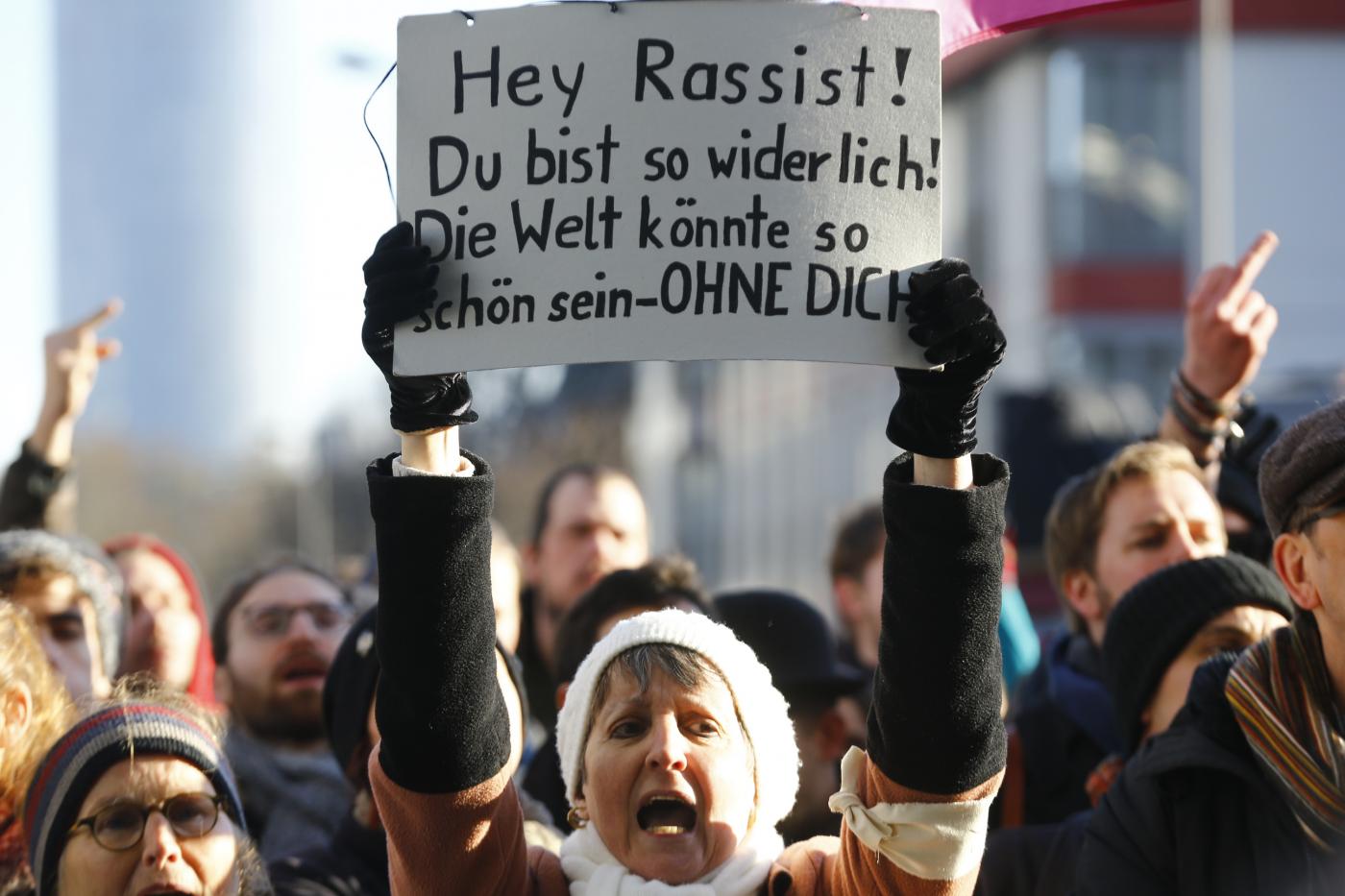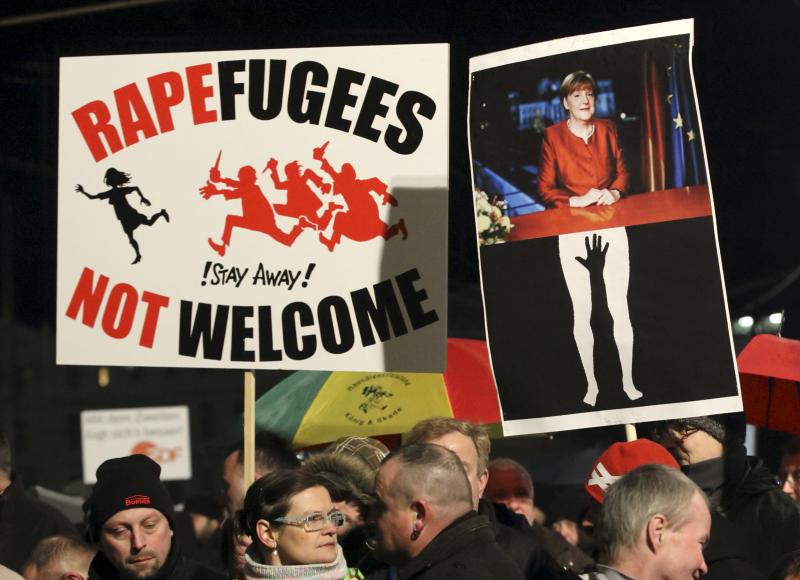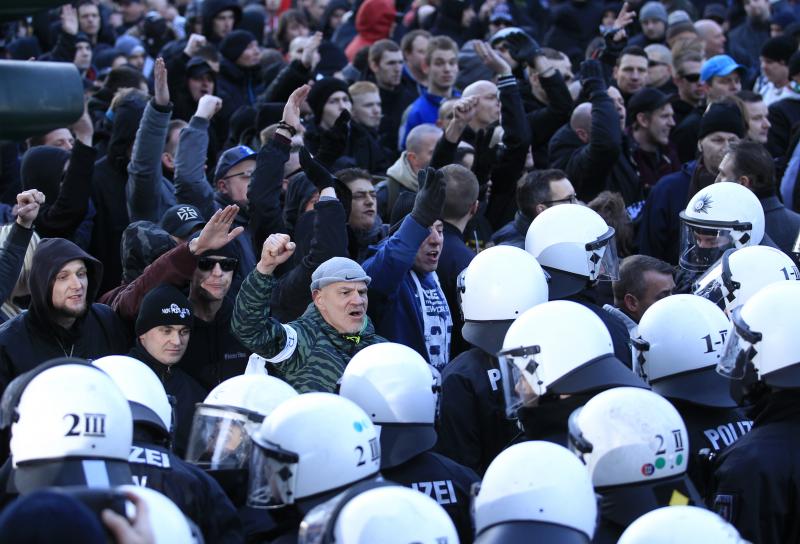PBS: Escaping Eritrea … [Read More...] about ካብ ውሽጢ ቤት ማእሰርታት ኤርትራ
The Elephant in the Room
Alexander Betts | February 2, 2016 | FOREIGN AFFAIRS
Islam and the Crisis of Liberal Values in Europe

Europe is still struggling to cope with a massive influx of refugees, with over a million asylum seekers arriving across the Mediterranean Sea. Nearly all of them are Muslims. This fact has shaped public and political opinion but has rarely been openly and honestly discussed. Can a Europe of 28 member states share responsibility for a smaller number of refugees than is currently in Lebanon alone? Of course it can. In fact, most European countries need the labor.
The elephant in the room is an underlying Islamophobia. The simple fact is that European member states don’t really want to welcome Muslim migrants. This has been explicit in the case of countries with vocal far-right parties and in central European countries with Christian nationalist governments. But the liberal political elites of western Europe have steered clear of admitting that the biggest single barrier to coherent asylum and immigration policies is public anxiety about Islam. Far-right parties have pandered to these fears, stoking xenophobia. For the most part, though, people across the rest of the political spectrum have remained silent on the topic.
After all, the problem can’t be that Europe believes it is unable to deal with the flow of migrants. It has historically been able to cope well with large influxes of refugees. Throughout the Cold War, for example, millions of people moved from eastern Europe to western Europe, fleeing communism. Europe then resettled hundreds of thousands of Vietnamese refugees in the 1980s and 1990s. It even took large numbers of migrants from Bosnia and Kosovo in the 1990s, including many Muslims—but this was before Islam became politically toxic. There has been far greater political skepticism toward those fleeing related conflicts in Afghanistan, Iraq, and now Syria.
More recently, the terrorist attack in Paris and reports of sexual assault and robbery in Cologne have been game changers for asylum in Europe. In Cologne, on New Year’s Eve, more than 100 women and girls reported that gangs of men had assaulted them; authorities identified the attackers as North African or Arab men. Syrian refugees were immediately implicated. The backlash has been swift, and public opinion—even in relatively migrant-friendly Germany—has shifted away from refugees. Most countries have not gone as far as Slovakia, which has said it will welcome only Christian refugees, but there is an underlying fear of Islam guiding European policymaking.
Statistically, there is no greater likelihood that refugees will be involved in terrorism or crime than the general populations.
Broadly speaking, Europe’s politicians have failed to articulate a vision for how its populations should think about Islam in Europe or to disentangle terms such as “refugees” and “migrants” from “terrorists” and “criminals.” European responses have been muddled and hypocritical. Many countries have committed to deporting tens of thousands, even though they know this to be logistically impractical. Politicians have cowered from saying anything more specific about Islam and integration, for fear of electoral recrimination or media judgment. And policies have emerged across Europe that fundamentally contradict liberal values.

Statistically, there is no greater likelihood that refugees will be involved in terrorism or crime than the general populations. But perception matters. Germany’s open immigration “experiment” is already under threat from a familiar pattern: a negative incident occurs that implicates refugees, the media pounces, the far right mobilizes, and the center-right shifts inches closer toward tightening borders.
The polarization of the debate has left a dearth of language through which remaining moderate politicians can articulate how Europeans should think about Islam, refugees, and migration. The starting point must be a clearheaded articulation and reassertion of liberal values.
Fundamentally, Europe is built on a shared belief in individual freedom. European values have thus historically included a commitment to human rights, democracy, gender equality, freedom of speech, freedom of religion, and the right to asylum. Most Europeans still believe in these values, but they are being poorly applied.
First, Europeans should avoid the tendency to engage in collective punishment. In Bornheim, Germany, all adult male refugees have been banned from public swimming pools after reports of sexual assault. This sort of policy should be unacceptable. Of course, people who migrate to Europe must adhere to its laws and social norms. But people should be judged—and punished—as the individuals they are.
Second, Europe should not waver in its commitment to freedom of religion. In a liberal community, people must be allowed to believe what they choose. Yet so many European policies are implicitly discriminatory; in Cardiff, the United Kingdom has forced asylum seekers to wear red wristbands at all times—a policy with harrowing historical parallels.
Third, Europe would have to do a better job upholding freedom of speech. The labeling of an idea as “religious” does not make it sacrosanct, beyond debate and criticism. Although hate speech crosses a threshold that requires regulation, “offense” on its own ought not to be criminalized. Charlie Hebdo’s portrait of Aylan Kurdi, the three-year-old Syrian boy who drowned in the Mediterranean Sea, as a grown-up sexually lecherous man provoked outrage. But its intention was satirical: to mock those who believe that all Syrian refugees are sexually predatory. Moreover, politicians should resist the temptation to restrict freedom of speech on university campuses; in the United Kingdom, for example, a counterterrorist bill includes misguided measures allowing colleges to ban extremist speakers from coming to speak.
Europe’s politicians have failed to articulate a vision for how its populations should think about Islam in Europe.

Finally, Europe must protect the right to asylum. European politicians must articulate clearly why refugees are a distinctive and privileged category of migrants. Germany has proposed to deport those immigrants convicted of crimes relating to Cologne. This is appropriate, with one exception: refugees should not be deported back to countries where they face persecution. European values dictate that whatever someone has done, nobody should ever be subjected to persecution, torture, or cruel, inhumane, and degrading treatment. Yet there is an increasingly open debate about deporting refugees, and European states have adopted stricter policies to deter asylum seekers, including Denmark’s decision to deny refugees the right to property and to impose time limits on refugee family reunification.
The security threats that Europe faces are real. The self-proclaimed Islamic State (also known as ISIS) and other terrorist groups threaten lives and values. Many of the refugees coming to Europe are themselves fleeing ISIS-related violence. The way to address security challenges is through better intelligence and criminal justice, not through restrictions on the right to asylum. The United Kingdom has avoided a mainland terrorist attack over the past decade because of its superior intelligence services, not because of its immigration policies. Bolstering those services, rather than undermining liberal values, is the best response to terror.
The last difficult question that Europeans might ask is: Is Islam compatible with liberal values? Generally, yes. In formulating policy, European leaders would be wise not to see Islam as incompatible with liberalism but to work with religious leaders to ensure that it isn’t.
Questions of migration management and integration policy are valid social concerns, but they must be addressed through informed and rational debate. Against a backdrop of incoherent and muddled thinking, Europe needs a new centrist politics. It must be grounded in liberalism, transcending both the xenophobia of the far right and the moral relativism of the far left. The center’s strength depends on its ability to show practical ways to navigate Europe’s emerging politics of fear. Only then will Europe be able to openly and honestly grapple with how to engage with refugees and migration in a changing world.
